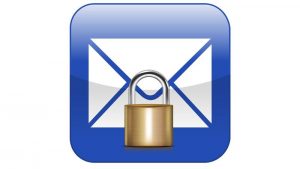By Ken Kajihiro
Email Encryption – Just do it! Email encryption is quick and easy to install, easy to use, and provides enhanced client confidentiality. In fact, the American Bar Association states “a lawyer shall make reasonable efforts to prevent the inadvertent or unauthorized disclosure of, or unauthorized access to, information relating to the representation of a client.”[1] Email encryption will help you ensure client confidentiality.
In 2017, the American Bar Association stated that email encryption may be warranted in some circumstances.[2] However, in modern times, with COVID-19, cyberattacks have greatly increased, “amplifying the threat to individuals and organizations.”[3] Thus, email encryption is highly recommended.
Not all law firms and offices have an information technology support department to set up email encryption; however, all law firms and offices have a duty to protect confidential client information.[4] Inadvertent or unauthorized disclosure could include an intercepted email by someone other than the intended recipient. Imagine the damage caused if a client’s tax return, medical records, or even credit card payment information were intercepted by an unauthorized party. Now, imagine the damage caused if a client’s confidential settlement agreement, merger and acquisition information, or intellectual property were intercepted by an unauthorized party. The damage would be immense. Email encryption will mitigate the risk of an inadvertent or unauthorized disclosure.
So, what are the options? Let’s start with the free options. If your law firm or office uses a Gmail-based email, you have got it easy! Mailvelope, FlowCrypt, and LockMagic are only a few of the many free Google Extensions for email encryption.[5] If your law firm or office uses an Outlook-based email, you have got it almost as easy! Secure/Multipurpose Internet Mail Extensions (S/MIME) or Azure Rights Management Services (RMS) are some of your choices.[6] Although, these email encryption options are free, they get the job done![7]
Next, the paid options. Many of the paid options are paid because they combine email encryption with a private email server for maximum client confidentiality.[8] Paying for a private email server removes the free-email-provider business incentive of making money with your data.[9] ProtonMail, HushMail, and CounterMail are only a few of the many paid options.[10] How much do these paid options cost? Not much. ProtonMail Professional is approximately $7.00 per month.[11] HushMail for Law is approximately $10.00 per month.[12] CounterMail Premium is approximately $5.00 per month.[13]
Overall, between the free options and paying approximately $5.00 to $10.00 per month, email encryption is well worth the time and money to ensure client confidentiality. Again, email encryption is quick and easy to install, easy to use, and provides enhanced client confidentiality. Email Encryption – Just do it!
[1] Model Rules of Pro. Conduct r. 1.6(c) (Am. Bar Ass’n 2020).
[2] ABA Comm. on Ethics & Pro. Resp., Formal Op. 17-477, at 5 (2017).
[3] COVID-19 Exploited by Malicious Cyber Actors, Cybersecurity and Infrastructure Security Agency (Apr. 8, 2020), https://us-cert.cisa.gov/ncas/alerts/aa20-099a.
[4] See Model Rules of Pro. Conduct r. 1.6(c) (Am. Bar Ass’n 2020).
[5] Stephanie Faris, Use These 4 Chrome Plugins to Encrypt Your Gmail Messages, Help Desk Geeks (Sept. 1, 2019), https://helpdeskgeek.com/free-tools-review/use-these-4-chrome-plugins-to-encrypt-your-gmail-messages.
[6] Bryan Peace, How to Encrypt Email in Microsoft Outlook, Virtru (Aug. 14, 2019), https://www.virtru.com/blog/encrypt-email-outlook.
[7] For instructions on how to install and use these email encryption methods, conduct a YouTube search for that specific email encryption method.
[8] See Alexander Fox, Are Private Email Services Worth the Money?, Make Tech Easier (June 13, 2019), https://www.maketecheasier.com/private-email-services-worth-the-money.
[9] Free email providers, such as Google, are free because they scan your email for targeted advertising purposes, to which they use to show you a personalized advertisement; although Google does not sell your information to third-parties, these third-parties pay Google to show advertisements to Google users who are most likely to purchase the advertiser’s product. Privacy Policy: Why You’re Seeing an Ad, Google, https://support.google.com/ads/answer/1634057?p=privpol_whyad&hl=en&visit_id=637374566438757927-831058077&rd=1 (last visited Oct. 6, 2020).
[10] Fox, supra note 8.
[11] Select Your ProtonMail Account Type, ProtonMail, https://protonmail.com/signup?plan=business (last visited Oct. 6, 2020).
[12] Email and Encryption in One Solution, HushMail, https://www.hushmail.com/business/legal/features/?source=website&tag=page_business_legal,btn_features (last visited Oct. 6, 2020).
[13] Services, CounterMail, https://countermail.com/?p=services (last visited Oct. 6, 2020).

Image source: https://www.techadvisor.co.uk/how-to/internet/how-encrypt-email-3636950
